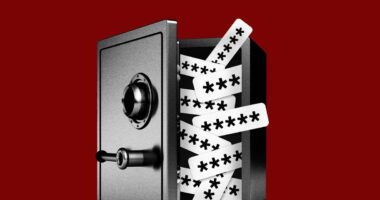
The case Mahanoy Area School District v. B.L., in which the Supreme Court heard oral arguments on Wednesday, would just be “Mean Girls” on steroids for the digital age if the First Amendment issues weren’t so important.
A 14-year-old high school cheerleader — B.L., for Brandi Levy — at Mahanoy Area High School in central Pennsylvania didn’t make the varsity cheerleading squad and vented her teenage angst at being consigned to another year of junior varsity to her friends on Snapchat — with the liberal use of a curse word and a two-fingered salute. But another cheerleader (who didn’t follow Levy on Snapchat) got a screenshot and brought it to her mother. The mother was, not coincidentally, one of the coaches and shared it with another coach, who was also a math teacher at the high school. Levy then got booted off of the JV squad for the year — and now the U.S. Supreme Court will determine whether a student has any right to free speech about school at all.
It would be laughable if it weren’t so important.
What is technically at stake here is whether the First Amendment’s protection of free speech applies to the off-campus doings of the nation’s 50 million public school students. But the case also illustrates the outsize reaction of a group of adults — who ought to know better — to a frustrated teenager in possession of a cellphone with a large group of friends and some number of frenemies.
This case, from start to finish, was a dangerous attempt on the part of frankly nosy parents, coaches, teachers and school administrators to infringe on the free speech rights of a young person.
The court will be deciding whether the 1969 decision in Tinker v. Des Moines Independent Community School District, which cemented students’ right to free speech in public schools, can be applied to off-campus speech. In that case, the court ruled that student speech is protected under the First Amendment as long as the school is not substantially disrupted.
The nominal question here is whether Levy, who is now an 18-year-old college student, substantially disrupted the operation of her small-town high school with an eight-word Snapchat rant that someone else passed around beyond the audience for which it was intended.
But the larger issue of whether Tinker applies to off-campus speech stabs at the heart of free speech for the digital generation — especially when the line between what is on campus and off is blurry because most student speech during the pandemic has taken place on Zoom and social media platforms.
Levy was at a 24-hour convenience store called Cocoa Hut on a Saturday in May 2017 when she found out she hadn’t made the varsity cheer squad; it compounded her existing sense of frustration because she’d also lost out on her preferred spot on the softball team and was in the middle of finals, Education Week reported.
“I was frustrated. I was upset. I was angry. And I made a post on Snapchat,” Levy told ABC News Live. “I said, ‘F school, F cheer, F softball, F everything.'” She and a friend ended the post by showing their middle fingers to the camera.
It landed what should have been a fleeting moment of teenage angst (and a ridiculous set of teenage antics designed to cause girls to argue with one another) before the United States Supreme Court.
It is what any teenager today would do: sharing her drama with her circle of 250 friends on social media. In this case, because it was 2017, it was on Snapchat, which allows people to post a combination of a photo and text that disappears after 24 hours. (In 2021, it would more likely be on TikTok; next year it’ll probably be something else.) If you live with a teenager, there is little explanation needed as to why she did it; it’s what teenagers do.
One would think that April Gnall, the first adult — and a cheerleading coach and parent of a teen — to whom the Snapchat screenshot was shown, would understand that and her role: One can either reduce teen drama or add to it. Gnall, though, took the screenshot to Nicole Luchetta-Rump, the other coach and a math teacher at the high school — who, again, as a cheerleading coach and high school teacher, should have had some prior experience with teenagers and their drama and how to react to it.
Luchetta-Rump even testified in court that the screenshot — taken to get around Snapchat’s deliberate ephemerality, spread Levy’s rant to people for whom it was not intended and cause drama — spread among cheerleaders who were “visibly upset” about it and asked the coaches to do something about it.
The coaches did: They suspended Levy for a year from the cheerleading team, claiming team rules meant cheerleaders had to “have respect for your school, coaches, teachers, other cheerleaders, and teams” and avoid “foul language and inappropriate gestures,” Education Week reported.
Let students say what they want on their own time. They will do it anyway.
“There was profanity in the snap and it was directed towards cheerleading,” Luchetta-Rump testified. “As cheerleaders, they have to be leaders and representatives of their school.”
It did not calm the situation. Instead, it landed what should have been a fleeting moment of teenage angst (and a ridiculous set of teenage antics designed to cause girls to argue with one another) before the United States Supreme Court.
Levy, with her parents, sued the Mahanoy Area School District arguing that the decision breached her First Amendment right to free speech, and she was reinstated to the JV squad in fall 2017 after a federal judge issued a restraining order against the school. Both that judge and then the U.S. Court of Appeals for the Third Circuit (which ruled in June) eventually foundthat the school had violated her free speech rights by suspending her from the team because of her Snapchat comments.
But the Mahanoy Area School District officials are asking the Supreme Court to overturn the ruling, arguing they are protecting schoolchildren against cyberbullying and need strict guidelines for the schools and the students while off campus.
What is at stake is whether the First Amendment’s protection of free speech applies to the off-campus doings of the nation’s 50 million public school students.
They said in court papers that the question of whether Tinker applies to off-campus speech “has become especially acute because social media has made it far easier for students’ off-campus messages to instantly reach a wide audience of classmates and dominate the on-campus environment,” per Education Week.
Remember: Levy told ABC News Live, “I said, ‘F school, F cheer, F softball, F everything.'”
Let’s be real here.
The F-word is one of the oldest swear words still in use and is one of the most versatile: It’s used as a noun, a verb, an adjective, an adverb and an interjection and is the English language’s sole infix. It can be used to explain many things but is especially handy to express frustration or disdain. What adult has not used it, let alone on a loop, at some point in their life? It is hard to see the coaches’ reaction to Levy’s use of it as anything less than rank hypocrisy.
An adult can either reduce teen drama or add to it.
Levy’s use of the word and the two-fingered hand gesture didn’t stop her from being a good student (she graduated from Mahanoy Area High School last year, and she now works part time while attending Bloomsburg University of Pennsylvania, where she is studying accounting, according to Education Week) or a good cheerleader. And using the F-word off campus doesn’t disrupt the operations of a school, let alone for a generation of students who consider it part of their vernacular.
Plus, while cyberbullying is a real problem requiring real solutions so is letting two adults who ought to know better participate in it. Who, exactly, was the cyberbully in this situation: The teenager who expressed general frustration on Snapchat about not making the team or the girls who passed a screenshot of the snap around the squad and the school and then demanded that the coaches do something about the message they themselves were amplifying to get the one girl in trouble? That should be the real question.
This case, from start to finish, was a dangerous attempt on the part of frankly nosy parents, coaches, teachers and school administrators to infringe on the free speech rights of a young person — and to disregard the rights of other parents to bring up their children as they see fit.
As for her case, Levy told The Associated Press, “I’m just trying to prove a point that young students and adults like me shouldn’t be punished for expressing their own feelings and letting others know how they feel.”
She’s right: Let students say what they want on their own time. They will do it anyway. They’re teenagers. They’re supposed to.
Source: | This article originally belongs to Nbcnews.com









